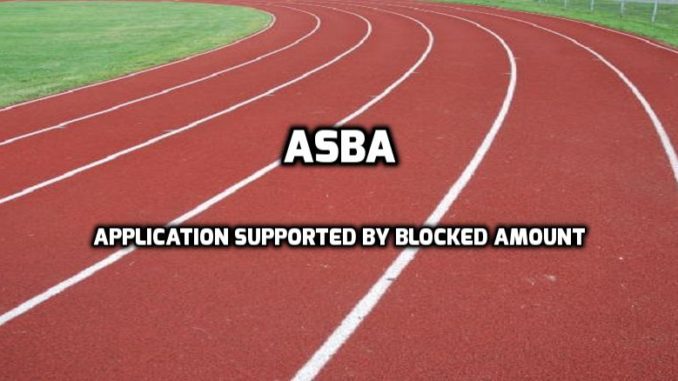
In January 2008 Reliance Power came out with Initial Public Offer (IPO) aggregating to Rs 11,563 crores. The issue was oversubscribed by more than 73 times and generated demand exceeding Rs 750,000 crores. Reliance Power collected application money of Rs 110,832 crores and had to refund the excess application money of Rs 99,269 crores. The entire process of application to refund took minimum 15 days. Assuming overnight interest rates of 6%, float income on the excess application money amounted to approx Rs 16 crores per day, i.e. total of Rs 240 crores for the 15 days period! That is a huge sum of money and is a leakage from investor’s perspective, the spoils of which is shared between the Issuer and the Bankers to the IPO.
How could you improve the system to make it fair to the investors? What if the investors don’t need to pay the application money upfront without knowing exactly how many shares would be allotted to them? What if the investors can pay money post allotment for the exact number of shares allotted to them and there is no requirement of refund? What if the money never leaves the investors account and he continues to earn interest, until final share allotment? What if it was possible to shorten the IPO timeline?
ASBA is the answer to all these questions.
What exactly is ASBA?
ASBA means Applications Supported by Blocked Amount (ASBA). Simply put, ASBA is a new method for making payment for IPO, right issues and Follow on public offers (FPO) made through book building route. Traditionally investors had to make payment by cheque / draft for the application amount. ASBA is an additional payment mode introduced by India’s capital market regulator SEBI in September 2008, with a view to make the existing public issue process more efficient.
How is it different?
In normal payment methods such as cheque and draft, investor has to make the payment of the full application amount upfront. Depending on the level of oversubscription, shares are allotted and excess amount paid on application is refunded. The whole process typically takes 12 to 15 days.
When payment is done through ASBA, application money doesn’t leave the bank account of the investor at the time of application, but is only blocked, i.e. even though the amount remains in the account and continues to earn interest, same cannot be withdrawn or otherwise utilized by the accountholder. Once issue is closed and basis of allotment finalized, only required amount for the shares allotted is debited from the account and balance amount is free for utilization.
Advantages of ASBA
Applying through ASBA process has the following advantages:
- Investor need not pay the application money upfront. Investor’s bank account is blocked to the extent of the application money, thus investor continue to earn interest on application money.
- No need to bother about refunds, as in ASBA only an amount proportionate to the securities allotted is taken from the bank account when the application is selected for allotment after the basis of allotment is finalized.
- Since the amount is available in the account, it is considered for calculation of the Monthly Average Balance (MAB).
- ASBA bids can be withdrawn during the bidding period and even after the bid closure period but prior to the finalization of basis of allotment.
However please note there is no advantage as far as allotment is concerned. The chance of getting allotment is same for all the applicants whether application is made through ASBA or non-ASBA.
Why ASBA?
ASBA was introduced with a view to shorten the IPO timeline. Traditional IPO payment methods such as cheques and drafts entails payment of money upfront by the investor and refund of the excess money by the company depending on the final allotment. However under ASBA investors pay for the exact number of shares allotted and there is no requirement of refund.
Who can use ASBA?
ASBA facility can be used by any category of investors, viz. Qualified Institutional Buyers (QIB), High Networth Individuals (HNIs) and Retail investors. In April 2011, SEBI made ASBA mandatory for all non-retail investors (HNIs and QIBs) investing in public and rights issues, while it is optional for the Retail investors.
Retail investor can apply either through ASBA or through existing system of payment through cheque. If an applicant applies through both, ASBA as well as non-ASBA then both the applications having the same PAN, will be treated as multiple application and hence will be rejected.
What is SCSB?
Self certified Syndicate Bank (SCSB) is a bank which is recognized as a bank capable of providing ASBA services to investors. ASBA applications can be submitted only to SCSB with which the investor is holding the bank account. In case investor does not have an account with any of the SCSBs, then he cannot make use of the ASBA facility.
ASBA process in brief:
- An investor shall submit an ASBA physically or electronically through the internet banking facility, to the SCSB with whom the bank account to be blocked, is maintained.
- SCSB shall then block the application money in the bank account specified in the ASBA. The application money shall remain blocked in the bank account till finalization of the basis of allotment.
- The application data shall thereafter be uploaded by the SCSB in the electronic bidding system through a web enabled interface provided by the Stock Exchanges.
- Once the basis of allotment is finalized, the Registrar to the Issue shall send an appropriate request to the SCSB for unblocking the relevant bank accounts and for transferring the requisite amount to the issuer’s account.
- In case of withdrawal/ failure of the issue, the amount shall be unblocked by the SCSB on receipt of information from the pre-issue merchant bankers.
Way forward
Ultimate objective for SEBI is to make the IPO process smooth and hassle free for the investors. Towards this end ASBA brings significant relief. SEBI would gradually move to make ASBA compulsory for all set of investors. This would enable to compress the issue timelines significantly. We could see issue timelines shrink to 3-4 days from the current 12-15 days. We could also see SEBI moving towards e-IPO, wherein there would be no paper application involved and applying for IPO would be akin to buying any other share from the broker.

Leave a Reply